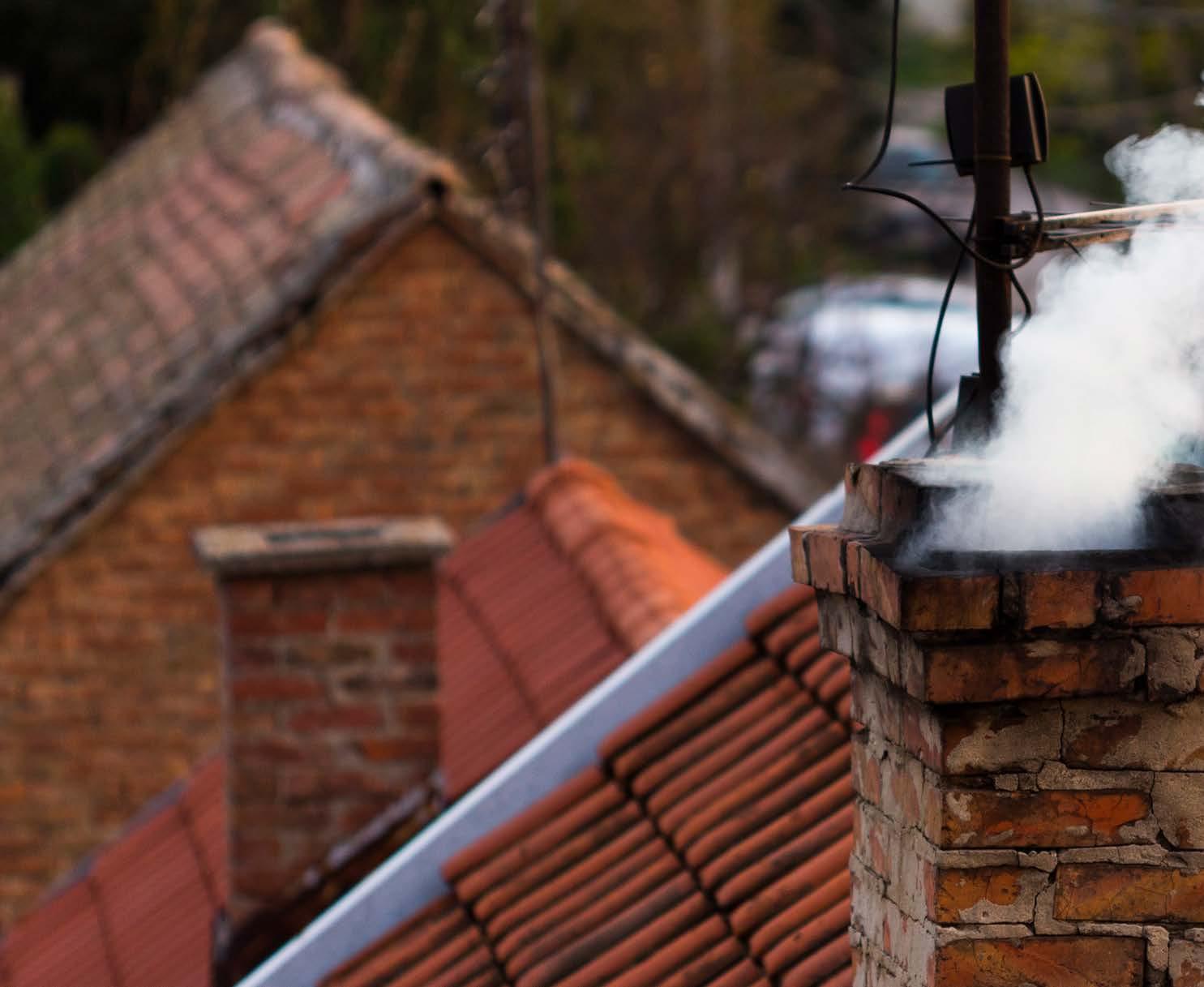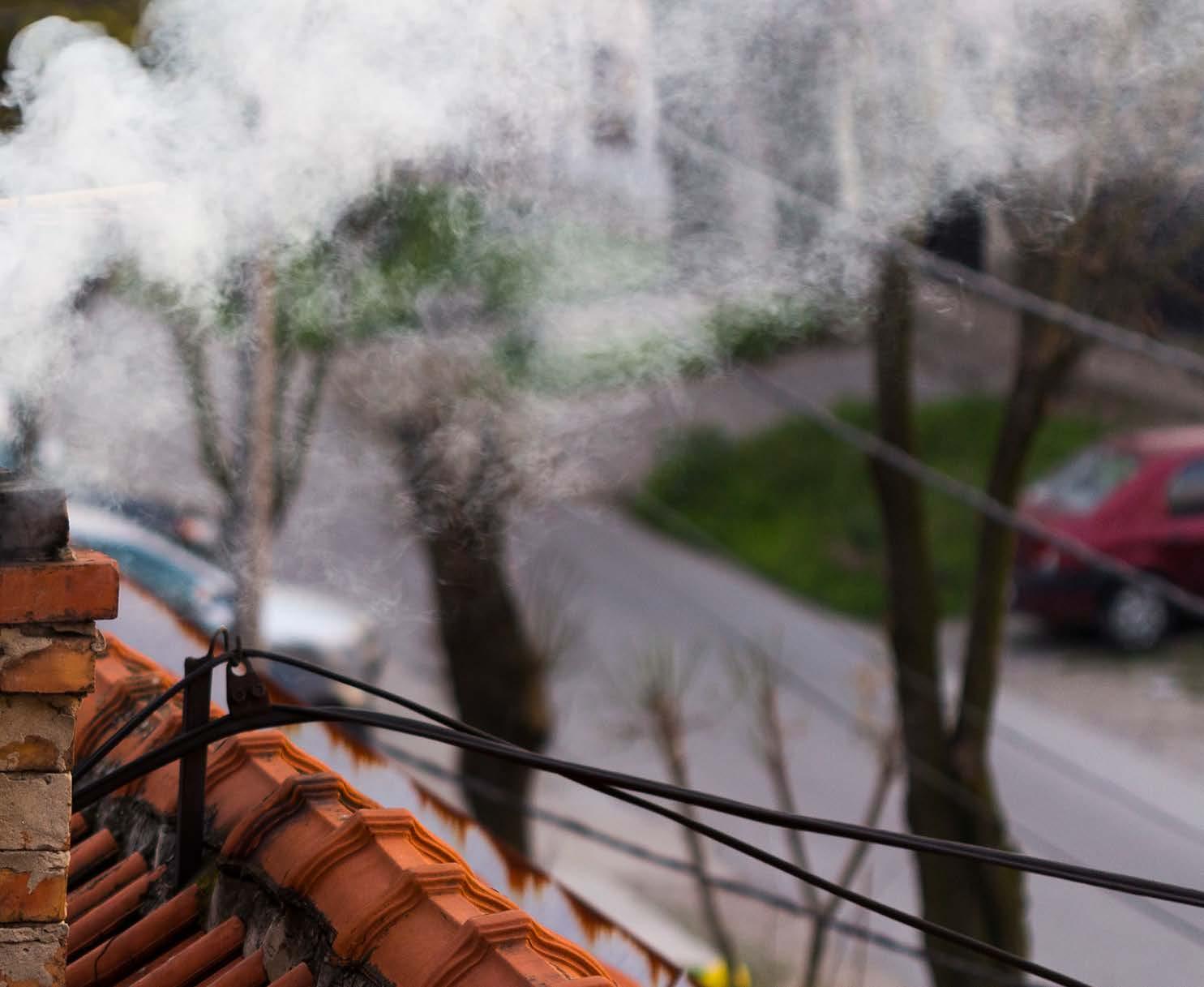
3 minute read
Environmental Plans Welcome As We Move Towards A Greener Planet - HETAS and Woodsure CEO
Response to new environment improvement plan set out by the government for 2023
In the new Environmental Improvement Plan 2023 set out by the government (published 31 January 2023), the legally binding actions promise an improvement of clean air and to tackle climate change.
Advertisement
Air quality in the UK has improved significantly in recent decades with a decrease in all five major air pollutants. Between 2010 and 2020, emissions of fine particulate matter (PM2.5) decreased by 18%; emissions of nitrogen oxides (NOx) decreased by 44%; sulphur dioxide (SO2) by 70%, non-methane volatile organic compounds (NMVOC) by 14%, and ammonia (NH3) by 0.2%. These reductions have produced significant benefits for our health and environment.
Building on the 2019 Clean Air Strategy and Environment Act, announcing the plan for cleaner air, the report outlines targets and commitments to drive down emissions and improve air quality in the home.
These are as follows:
• An Annual Mean Concentration Target for PM2.5 levels in England to be 10 µg m-3 or below by 2040, with a new interim target of 12 µg/m3 by the end of January 2028
• A Population Exposure Reduction Target for a reduction in PM2.5 population exposure of 35% compared to 2018 to be achieved by
2040, with a new interim target to reduce by 22% by the end of January 2028
Further measures to reduce emissions include:
• Tighten the limits that new stoves in Smoke Control Areas must meet, reducing the limit from 5g of smoke per hour to a maximum of 3g.
• Design and implement measures to drive a shift away from older, more polluting appliances to newer appliances which meet our tough new emission standards
• Look at the option of extending the solid fuels legislation to fuels burnt outside
Welcoming the new measures to improve air quality, leading biomass and fuel heating organisation, HETAS, will continue to work with Defra and other organisations which promote best practice in use of wood stoves and fireplaces in using cleaner and more efficient fuels, and techniques to reduce exposure to pollutants.
Bruce Allen, chief executive officer for HETAS and Woodsure, comments:
“The new plan set out by the government fits well with our organisational purpose of reducing the environmental impact caused by burning solid fuels, wood and biomass. The government is not considering a ban on domestic heating, recognising households that there are people reliant on solid fuel burning for heating, hot water and cooking. We know that many will be happy that they don’t need to make any drastic, costly changes in the near future. Many value the bit of fuel independence achieved from log burning.
“But amongst those who are currently dependent on solid fuel, some may inadvertently be causing unnecessary pollution by burning wet wood or inappropriate fuel.
“Part of our job as a not-for-profit industry organisation is to raise awareness of and educate about the right way to burn fuel as efficiently, cleanly and sustainably as possible where fires, stoves or boilers are in place.
“Dry or seasoned wood (with a moisture content of up to 20%) emits 7.21g per tonne of PM2.5 emissions when burned. But this figure quadruples to 28.87g per tonne when the wood is wet.
“If more people burned better by simply switching to the right fuel or by using an efficient appliance, we could dramatically reduce harmful emissions and ultimately do much better for our planet.
“Last year we launched our independent Cleaner Choice Scheme for UK biomass and solid fuel appliances. The Cleaner Choice appliance scheme offers a simple way to choose solid fuel, wood, or biomass appliances that are even cleaner to operate than current regulations require.
“In fact, appliances can only be approved if they beat current emissions requirements for Defra exemption by at least 50% ensuring environmentally responsible, and cleaner use.
“We all breathe the same air; and while we agree that the industry undoubtedly has more to do to tackle air pollution, we know that educating consumers on the cleaner, safer choices they can make when it comes to solid fuel will also have a significant impact.

Our advice for retailers to give to consumers covers three main points:
• When installing a new heating appliance, opt for a Cleaner Choice approved stove, cooker or boiler, which achieves 50% lower PM2.5 emissions than Defra exemption requirements
• When choosing fuels, look for the Ready to Burn certification mark – a DEFRA scheme (administered by HETAS and Woodsure), guaranteeing the cleanest fuels for burning at home
• Remember to book your annual sweep and services; a well-maintained appliance will burn more cleanly, efficiently and safely”
For more information about cleaner, safer choices for solid fuel use within the home, visit hetas.co.uk or woodsure.co.uk.










